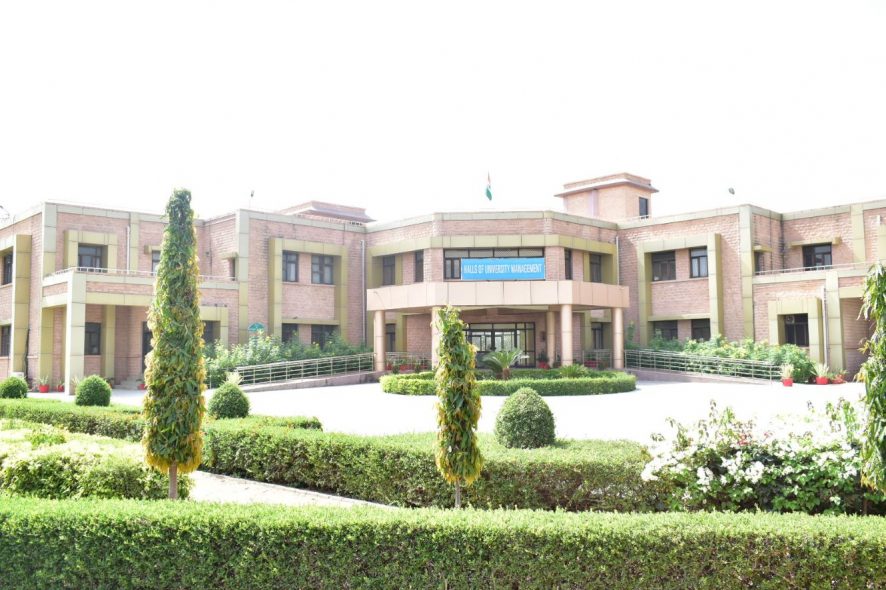The NLU Antitrust Law Moot Court Competition, started a decade ago, was conceived as the first moot court competition in the area of Competition Law and as an initiative to increase awareness and interest in this field among the legal fraternity across the country. The flagship event of NLU Jodhpur has always been known for its excellent mooting as well as judging, and grown significantly over the last ten editions. This year we feel immensely proud to bring to you the Eleventh NLU Antitrust Law Moot Court Competition, 2020 from March 13-15, 2020. The competition will be organized in association with Cyril Amarchand Mangaldas and under the patronage of Competition Commission of India, with knowledge partners, SCCOnline and Eastern Book Company.
Breaking all records, this year 42 teams from some of the best law colleges in the country have gathered to battle for the exciting prizes and to finally put all their preparation to the test. Participants get the enormous opportunity to argue before expert practitioners and academicians, including judges from Cyril Amarchand Mangaldas and the Competition Commission of India.
The moot is soon to begin and we are here to keep you updated on exactly what is going on! You can also follow us on Instagram and Facebook for more insights. Wishing the best to all the participating teams!
Day 1 – Inaugural Ceremony & Preliminary Rounds
The Eleventh NLU Antitrust Law Moot Court Competition has been inaugurated in the presence of Dr. I.P. Massey and the Registrar, Mr. Sohan Lal Sharma. The registrations and exchange of memorials between the teams is underway in the Auditorium.
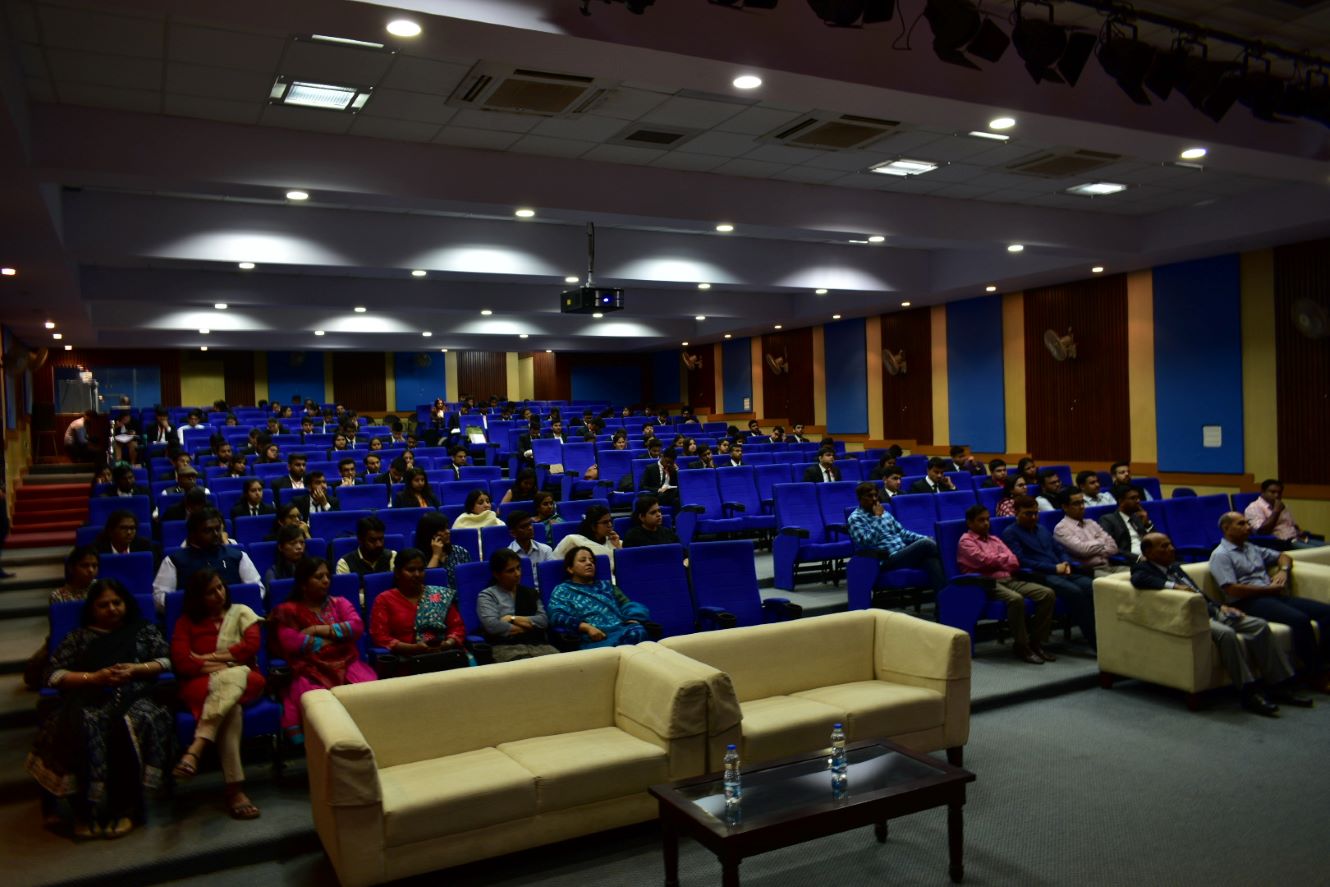
10:45 – 11:45 Researchers’ Test
What makes a team complete is the presence of mind and a sheer sense of determination of the Researcher throughout the competition. The test to judge the Best Researcher has begun! May the best one win.
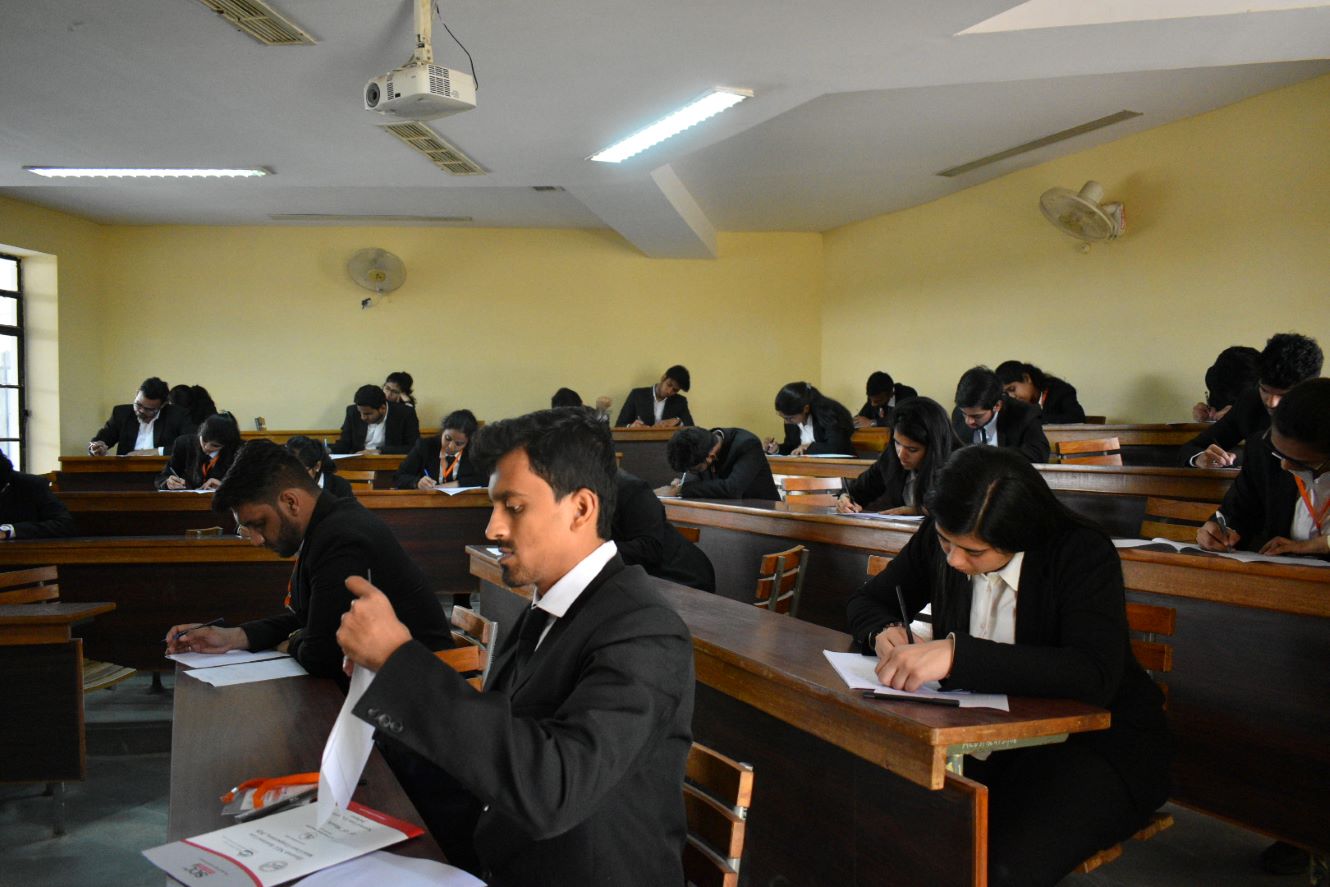
2:30 – 3:30 Judges’ Briefing
To kick start the competition in a full fledged swing, the representatives from Cyril Amarchand Mangaldas, also the drafters of this year’s moot proposition, undertook a detailed discussion with the judges of the Preliminary Rounds. All the minute intricacies, facts, legal framework and marking criteria were discussed in depth. The judges for the rounds are distinguished legal professionals and academicians from around the country.
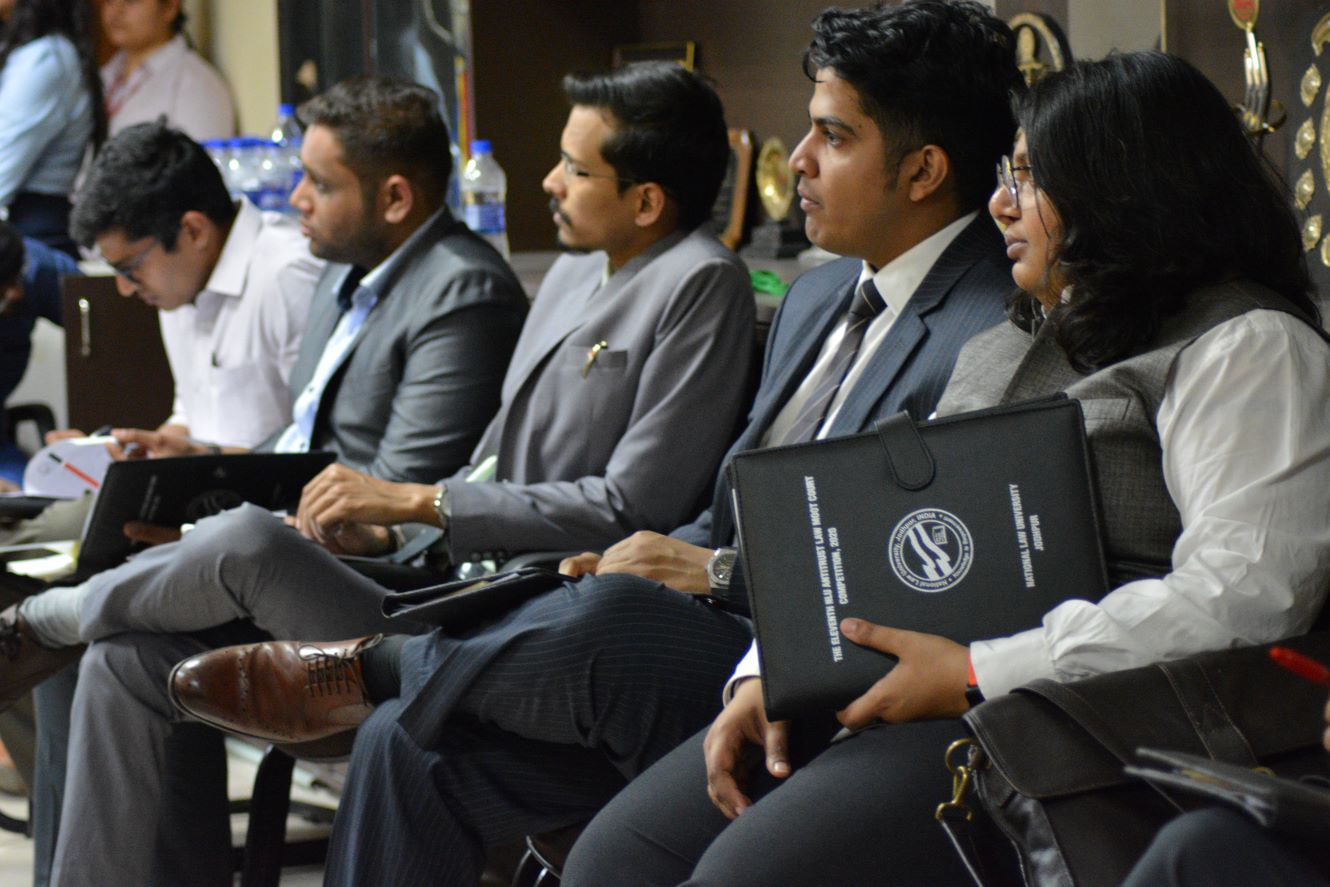
3:30 – 5:30 pm Preliminary Rounds
At last, the first rounds of the competition have begun! The participants are tired after facing the grilling judges, but there’s a lot more in package for them! The reverse prelims will start shortly.
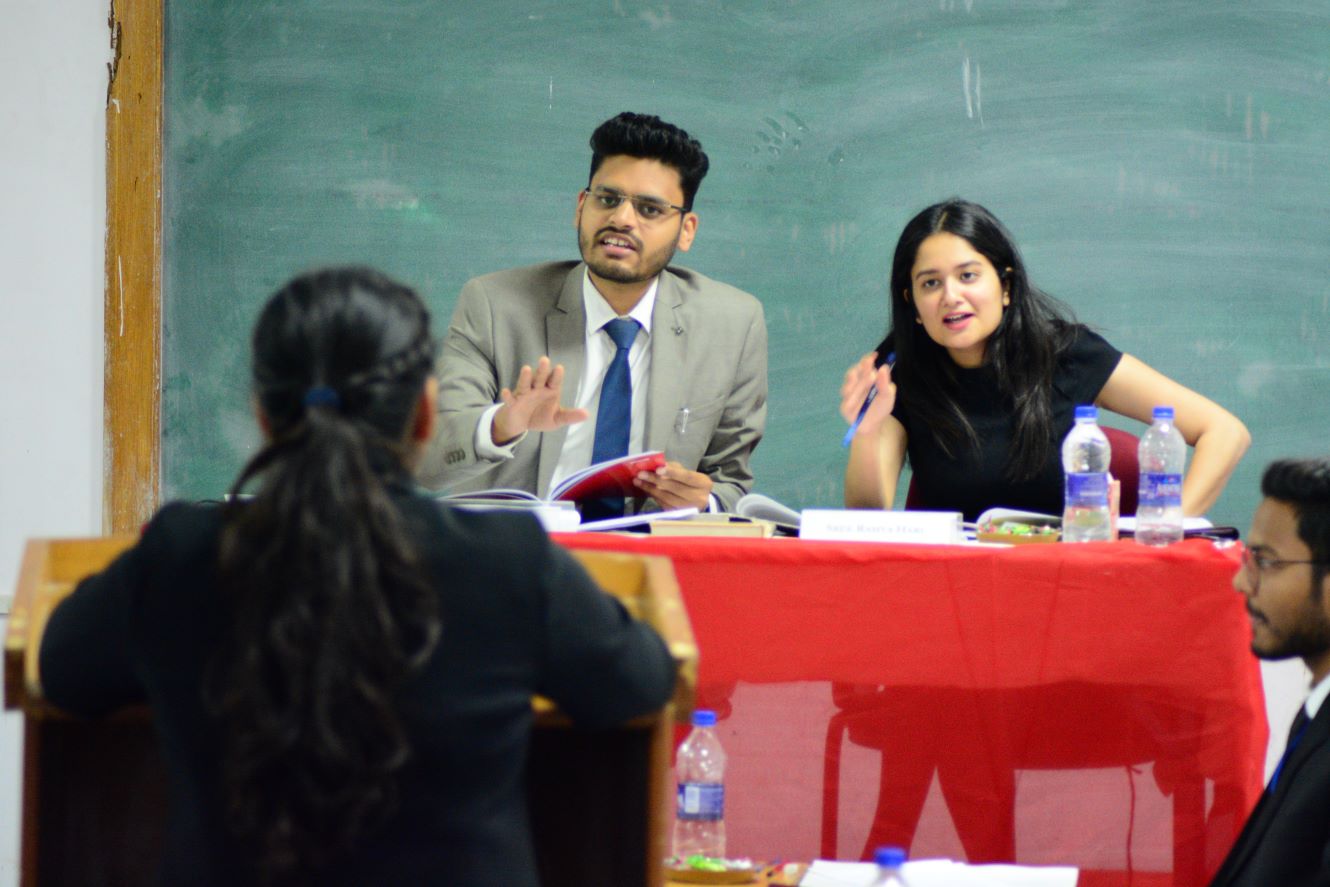
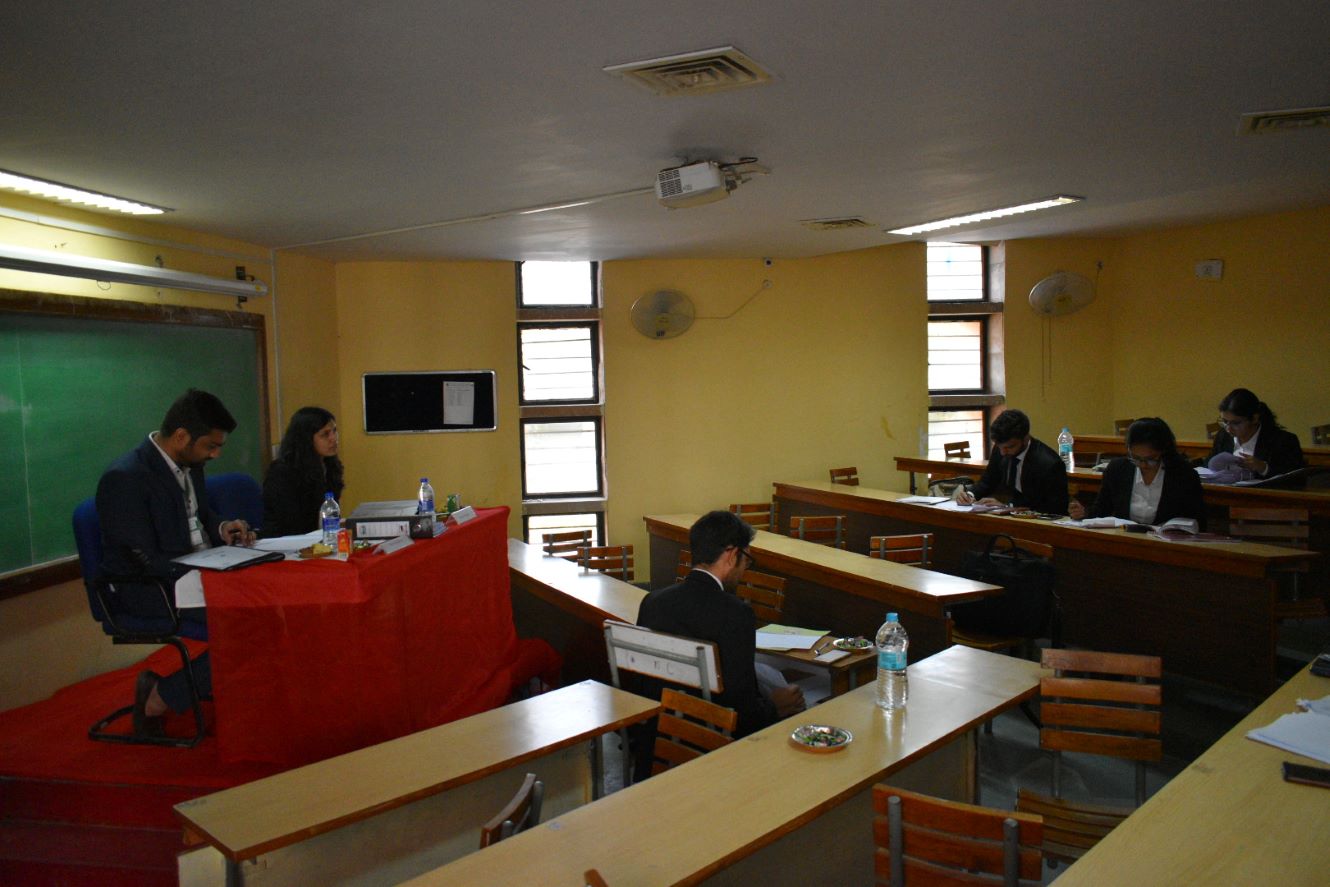
7:00 – 9:00 pm Reverse Prelims
A very interesting way of ensuring that every team has an equal chance to present their best arguments from both the sides, and thus to maintain a balance in the scoring, NLU Antitrust Moot Court Competition has Reverse Prelims as well. It is the perfect way to put to test the teams’ knowledge of law and grip on the facts.
The first day of the competition is nearing an end and the participants and the judges head towards the dinner.
11:15 pm – Results for Octa-Finals Announced
The Reverse Prelims have been concluded and the teams qualifying to the Octa-Finals are as follows (in alphabetical order):
- Amity Law School Delhi- Affliated To IP
- Christ University
- Dr. Ram Manohar Lohiya National Law University
- Gujarat National Law University
- Institute Of Law, Nirma University
- Law Centre-2, Faculty Of Law, University Of Delhi
- Lloyd Law College
- Maharashtra National Law University, Mumbai
- National Law Univeristy Odisha
- National Law Univeristy, Delhi
- National Law University, Nagpur
- National University Of Advanced Legal Studies
- O.P. Jindal Global University
- Rajiv Gandhi National University Of Law, Patiala
- Symbiosis Law School, Noida
- Symbiosis Law School, Pune
Memorials have been exchanged according to the match-ups, and the day’s events have come to an end. We congratulate the Octa-Finalists! Tomorrow shall be another crucial day, with the Octas, Reverse Octas, Quarters and Semi-Final rounds. Stay tuned for the updates!
DAY 2 – Octa Finals, Reverse Octas and Quarter Finals
A new day with the sun shining bright has set the perfect pace to encounter some exceptional quality of mooting!
10:30 – 12:30 Octa Finals
It’s go time! The judges are seated, the teams look highly spirited and with just the right amount of enthusiasm and nervousness, we are ready to begin the first round of the day.
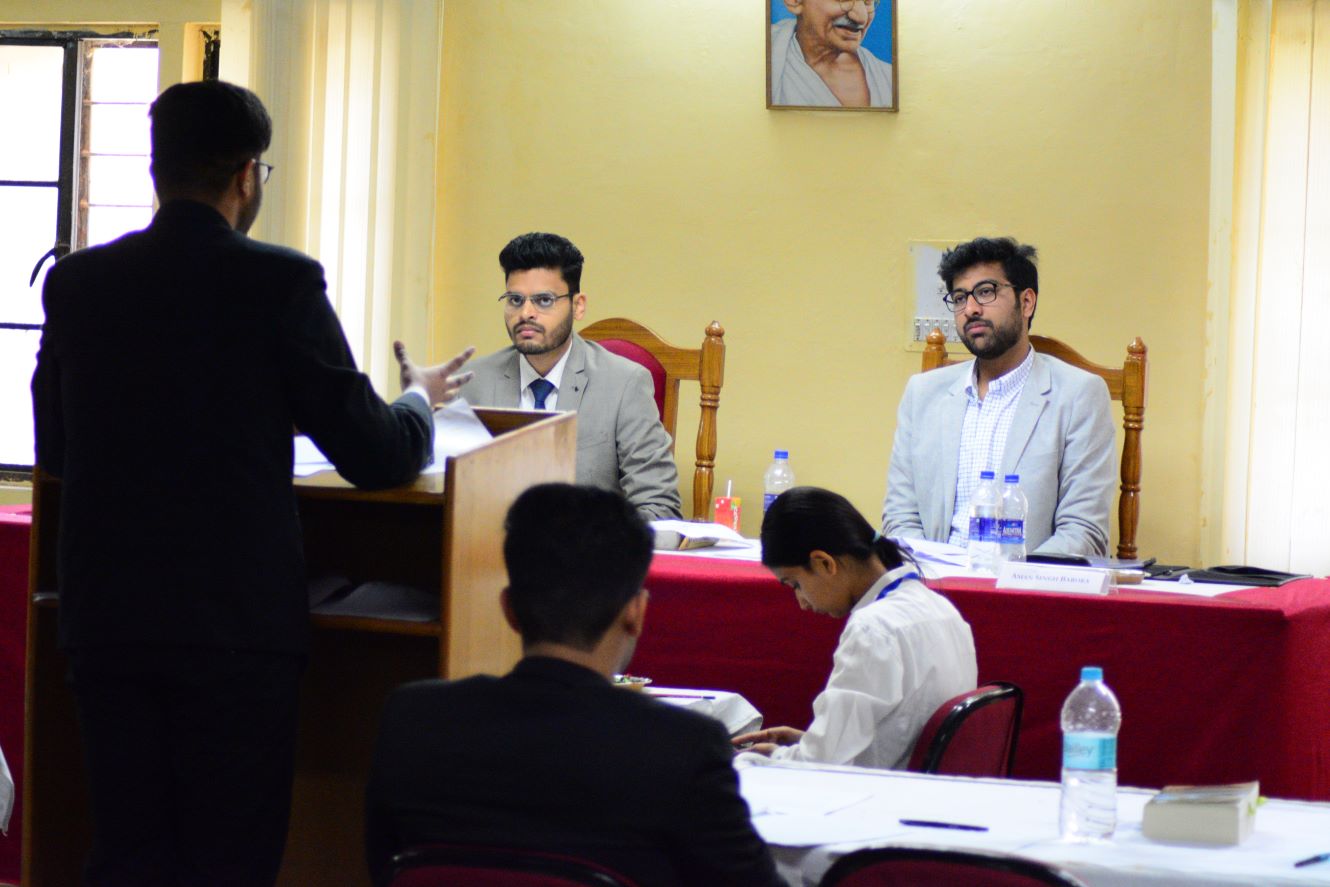
1:30 – 3:00 Reverse Octa Rounds
We can’t wait to see what the second rounds are in store for the teams and witness the tough competition they give to each other! Each step these teams take and each argument they present today, decides whether or not they make it to the Quarters!
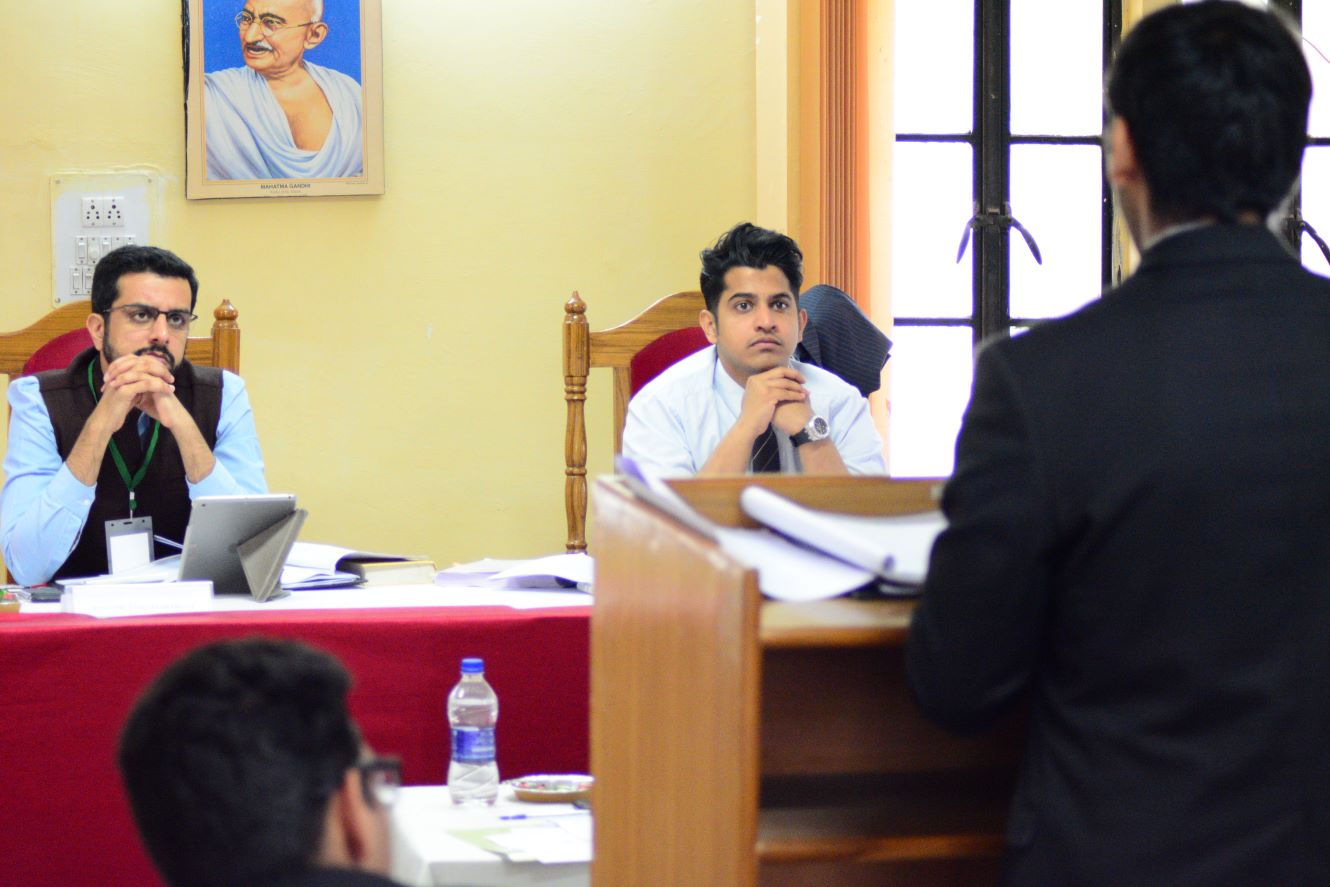
4:00 – Announcement of Results
The Reverse Octa Final Rounds have come to an end and all the sixteen teams have successfully shown their exemplary mooting skills. It for sure was a tough call for the judges to decide who’ll move forward but a decision has finally been made. The teams qualifying to the Quarters (in alphabetical order) are:
- Amity Law School, Delhi
- Christ University
- Gujarat National Law University
- Lloyd Law College
- National Law Univeristy, Delhi
- National University Of Advanced Legal Studies, Kochi
- Rajiv Gandhi National University Of Law, Patiala
- Symbiosis Law School, Noida
The end moment preparations for the upcoming round is on with full swing! The court rooms are all set to host the Quarters!
5:00 – 6:30 Quarters
The judges are seated, the teams look confident and we are all set to begin the Quarters!
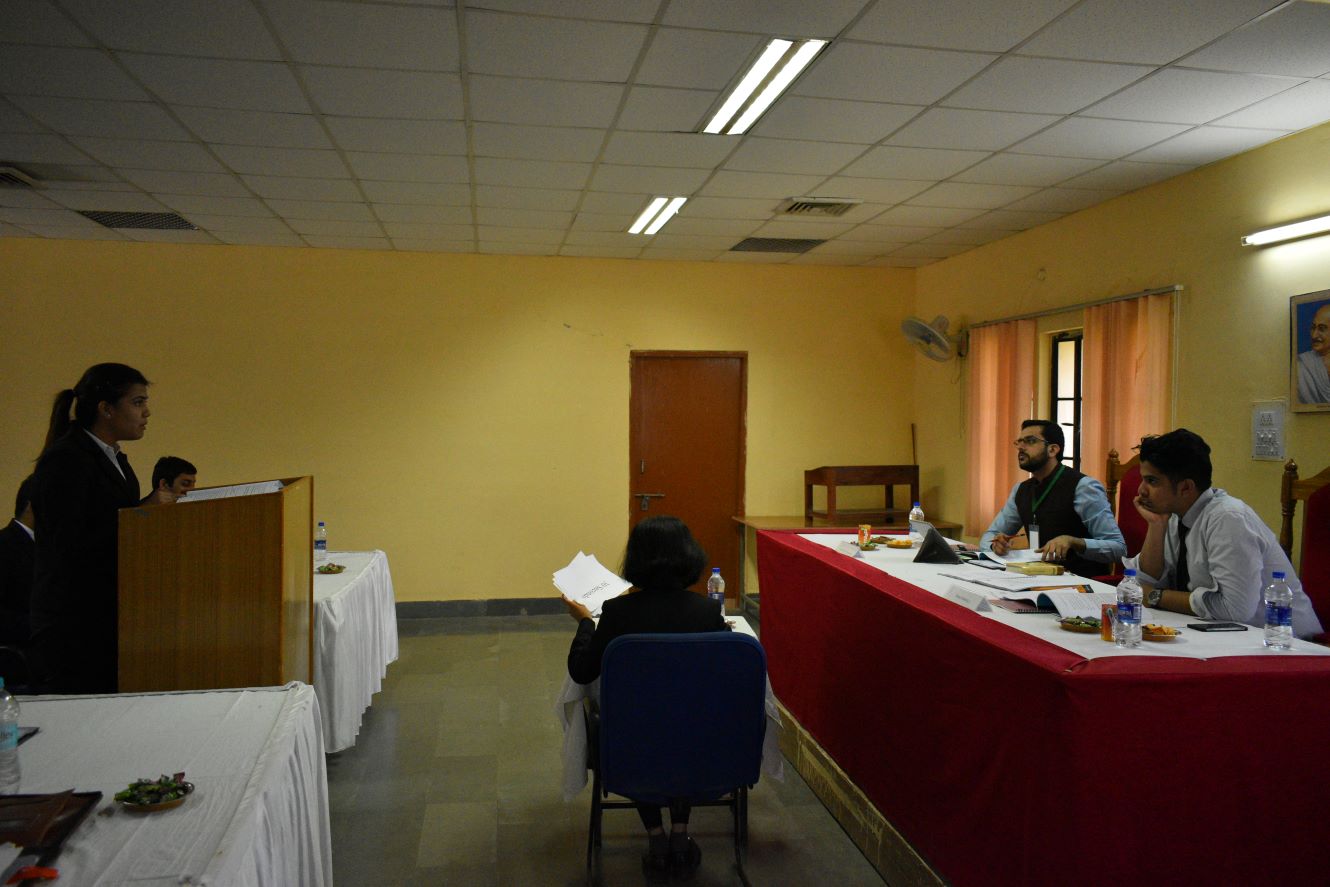
7:00 Announcement of Results
The following teams have qualified for the Semis:
- Gujarat National Law University
- Lloyd Law College
- National Law Univeristy, Delhi
- Symbiosis Law School, Noida
8:00 – 9:30 Semi Finals
The teams are in their allocated court rooms for the last rounds of the day. Last minute prep continues as they structure their arguments and rebuttals.
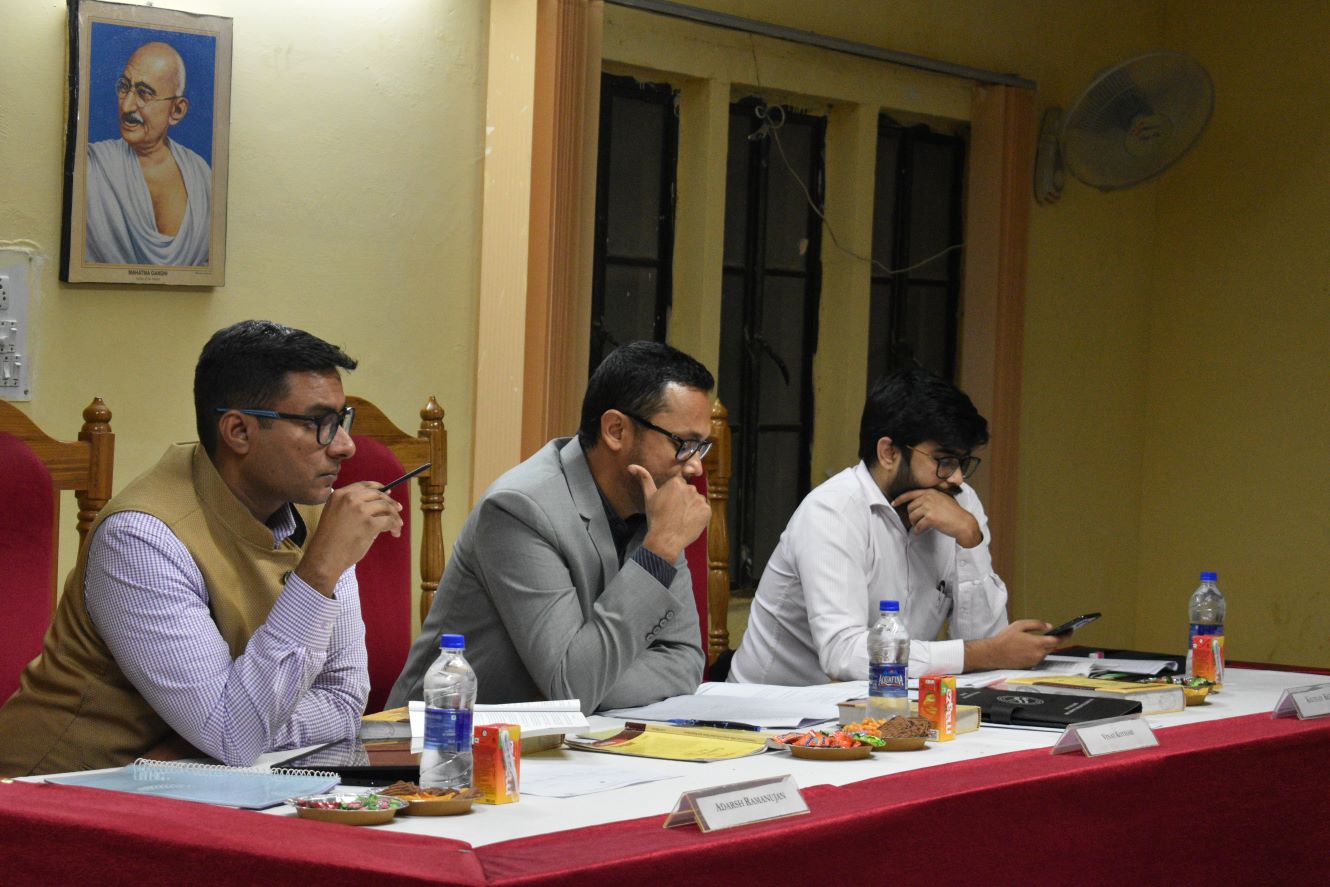
The courtrooms are engulfed with brilliant argumentation and the teams seem to have considerably upped their game since the previous rounds
10:30 Results
The judges of the last round appreciate the hard work put in by all four teams.
The most awaited results for the day are out! The two teams which are going to qualify and go against each other in the finals are:
- Lloyd Law College
- Symbiosis Law School, Noida
DAY 3 – FINALS
9:30 AM – The judges are seated in the auditorium and the Final rounds of the Eleventh NLU Antitrust Moot Court Competition will begin shortly. Due to an impending threat of coronavirus right now, the organizers have decided to limit the audience for the Finals. Those who wish to witness the Finals can visit our Instagram Page for live streaming of the rounds.
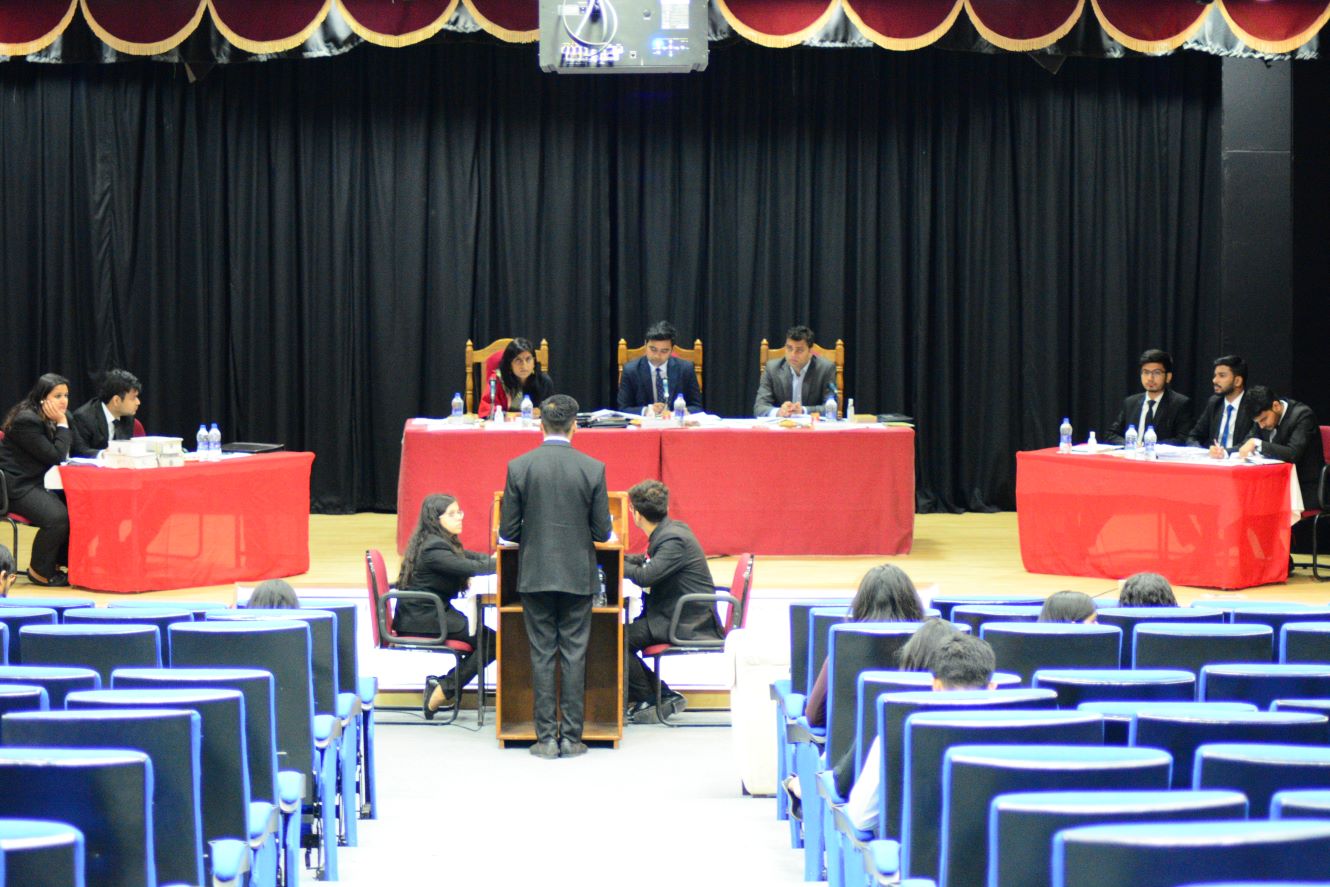
Bench for the Finals – Ms. Bhawna Gulati (Joint Director of Law, Competition Commission of India), Mr. Vijay Pratap Singh Chauhan (Cyril Amarchand Mangaldas) and Mr. Vaibhav Choukse (Competition Law Partner, JSA)
9:55 AM – The first speaker from the Appellant’s side, begins his speech. He is calm and is responding well to the judges, who waste no opportunity in grilling him on the law and facts. The bench is fairly active, and all the three judges are participating equally.
10:05 AM – The judges ask for the jurisprudence for negating the “presumption of dominance”. They are intrigued to know how Trimato is not a dominant player considering that the market in the present case scenario is a dynamic one and that the Trimato’s market share has consistently been 60% in Vormir.
10:15 AM – Speaker 2 from the Appellant’s side has now taken over. He seeks permission to address the Bench collectively as Your Lordships. The main contention putforth by him is whether there is a violation of Section 3 of the Competition Act in the present case.
10:21 AM – The counsel highlights the importance of parity agreements and and how they do not cause appreciable adverse effect on competition. He further fiercely submits that the market here is a new one, and if the Bench doesn’t protect them, the whole market will fall.
10:25 AM – According to the Appellants, there is no “hub and spoke” cartel with their partner restaurants. The Speaker invokes Section 3(3) read with 3(1) of the Competition Act while structuring his arguments. He places reliance on Cement Cartel case to prove that VAR in the present case has the capacity to facilitate cartelization with the member restaurants. Further, he points out that prices per se are not confidential information and anyone can approach the restaurants and ask for their prices.
The judges ask the counsel to substantiate his argument about cartelization by giving evidence. The Speaker confidently directs the attention of the Bench to the moot proposition where VAR has been preparing annual reports about comparative prices and discussing the confidential and sensitive information about the restaurants in the bi-annual meetings.
Further, the Appellants point out that they are only asking the Director General to investigate in the present matter. In these bi-annual meetings, confidential and sensitive information is discussed, which the Appellants are not aware of. Ms. Bhawna curiously asks how are they contending this issue if they don’t know what this confidential information is. The speaker argues that the prices were increased by 200% on the platform of FSAs and that they only seek for the Honble Tribunal to modify the order in a fashion they deem fit to direct the Director General to conduct the investigations as per Section 53 of the Act.
10:35 AM – The Speaker most respectfully submits the prayer.

Respondents gearing up for their turn.
10:38 AM – The first speaker from the Respondents side, takes the podium. The speaker has a three-fold submission on the violation of Section 3(3)(1) read with Section 2(c) of the Act.
10:40 AM The speaker relies on Soda Ash Case to place reliance on circumstantial evidence, which is, the manner and the nature of the APPAs signed. This constitutes collusion and hence, price parallelism. He submits that the restaurants have to keep their prices similar. The judges are of the opinion that this does not satisfy the threshold of establishing the existence of an “agreement”, as under Section 2(b) of the Act. The counsel, while clarifying the threshold for the same, states that it is not necessary to have a written agreement in place and a proof of “action in concert” is sufficient. Further, by relying on Express Industry Council of India v. Jet Airways, he affirmed that parallel pricing is legal only if no information is exchanged and the members act independently. This is not the case in the present fact situation.
10:44 AM – Coming to the third contention, the Speaker asserts that it can be presumed that there is an appreciable adverse effect on the competition in the relevant market. He emphasizes on the common shareholding of IronBank in all the three entities to show that there is a high preponderance of probability that there was an exchange of information between them. He further submits that the actions of FSA violate Sections 3(3)(b) and 3(1) of the Act and hence, such a presumption arises in the given case.
10:46 AM – Moving on to the fourth submission regarding non violation of Sections 3(3) and 3(1) on the part of VAR, the Speaker had a two-fold argument. Firstly, he proved that there was no agreement in the given fact scenario and hence, there can be no cartel. For this, he places reliance on Neeraj Malhotra case, in which it was held that if there does not exist any unequivocal agreement between the members and the same can also not be proved by the circumstantial evidence, then there exists no cartel. Further, the Speaker cited the Noida Software case to state that merely forming an association does not in itself mean that it is an anti-competitive activity. Furthermore, in the Videocon case, it was affirmed that a mere discussion and exchange of information by the members of association cannot be held to be violative of the Act.
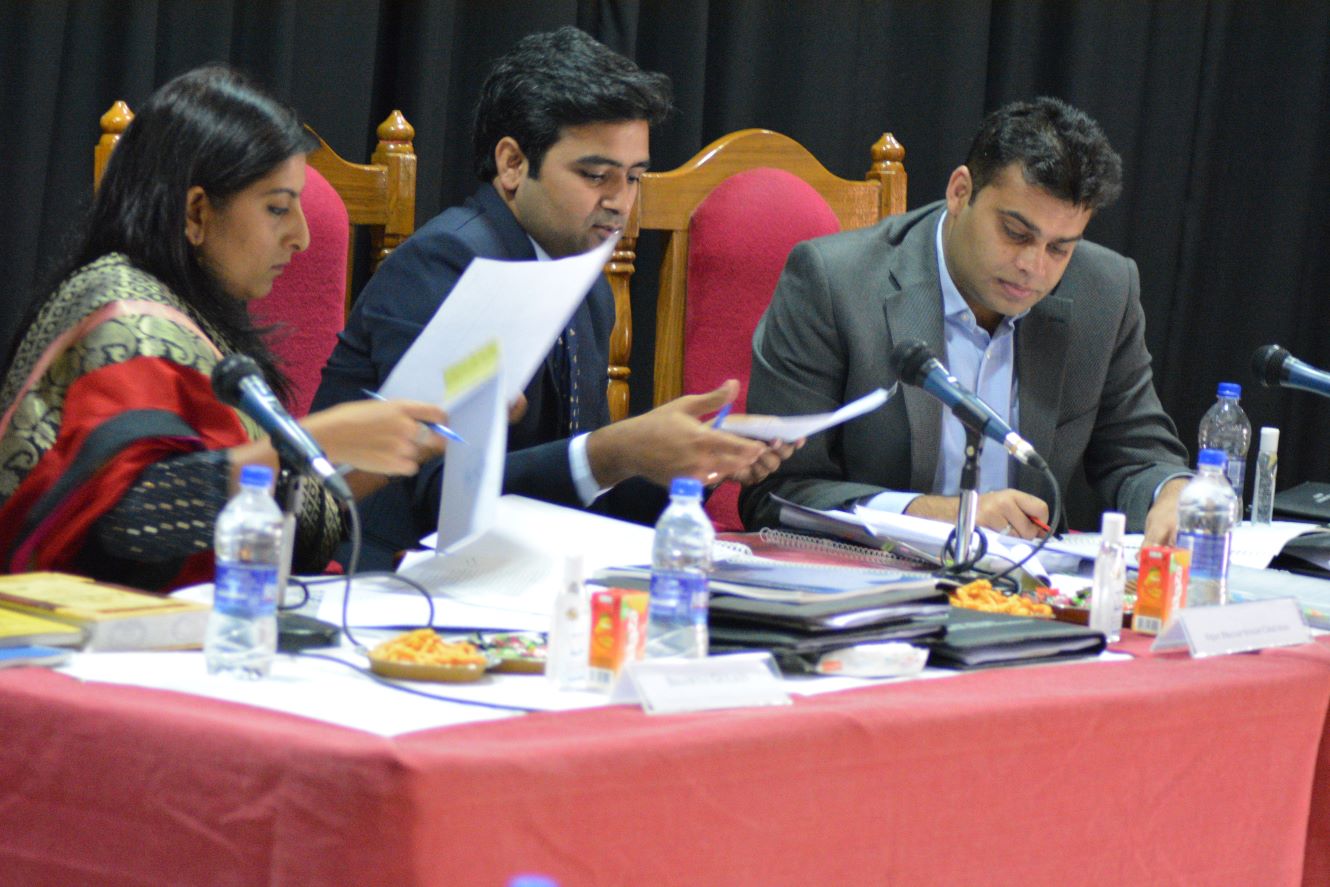
The Speaker further argues that in this case existence of parallel pricing cannot establish anti-competitive activities. In the given facts, parallel pricing didn’t arise because of the conduct of VAR but because of the signing of APPAs. Further, the increment of pricing is because of excessive charging of commissions and deep discounts being offered to the consumers in the market. The Speaker also points out that though there was an increment in the pricing, but it isn’t established that the increment was by 200%. On this, Mr. Vijay asks what does deep discounting mean, given that merely offering discounts is not bad. To this, the Respondents contend that if a heavy discount is given, the balance in the market is disturbed. Also, to mitigate the expenses, it is important that there is a bar or a slab for offering such discounts.
10:54 AM – The Respondents cite the Samir Agarwal case along with a diagram presented in their compendium to explain the “hub and spoke” cartel. They also contend that the information discussed in the meetings is an established trade practice and cannot be said to be anti competitive in nature. It was only done to understand the market foreseeability and the market dynamics. To this, Ms. Bhawna asks how does information about pricing tell one about the market dynamics. Expounding on this argument, the counsel brings attention of the bench to the affordability factor and the consumer preferences. Whether at a given stipulated price will a consumer be willing to buy the commodity or not is an important factor for foreseeing the market. Since the prices that are shared are the current prices of commodities, also available in public domain, there is nothing confidential about them.
11:14 AM – With just two minutes left, the Speaker 2 brings up the issue of these entities being a single economic entity and thus, a violation of Section 4 due to dominance in the relevant market. On this, Mr. Vaibhav asks how can a single economic entity be also a cartel? There cannot be an agreement here, and thus, this is a double edged sword argument. After seeking an extension of 2 more minutes, the counsel states that a single economic entity and formation of a group are two different issues altogether. To this, Mr. Vaibhav again asks the counsel to choose one argument, because using both of them together is paradoxical. By concluding, the speaker said that the allegations putforth are strictly within the confinements of the moot proposition and the given facts.
11:25 AM – After the end of rebuttals and surrebuttals, the judges need a few minutes to gather their thoughts. The judges really pushed the students to hone their understanding of the law and facts with their questioning.
Amidst the tensions running high in the room, the teams are asked to wait outside.
11:58 AM – Announcement of Results
The most awaited moment is here! The teams are eager to find out the results of the rounds. All their months of hard work boils down to this one moment, and the importance of this is reflected by the seriousness we see on their faces.
The Honorable Vice Chancellor, Dr. Poonam Pradhan Saxena, is extremely delighted to announce the following winners:
Winners: Symbiosis Law School, Noida
Runners Up: Lloyd Law College
Best Student Advocate (Finals): Animesh (Lloyd Law College)
Best Student Advocate: Kritika Narayan (Amity Law School, Delhi)
Second Best Student Advocate: Zunhaid Adil Tapia (Symbiosis Law School, Pune)
Best Researcher: Lubhansi Rai (Amity Law School, Delhi)
Best Memoranda: National Law Institute University, Bhopal
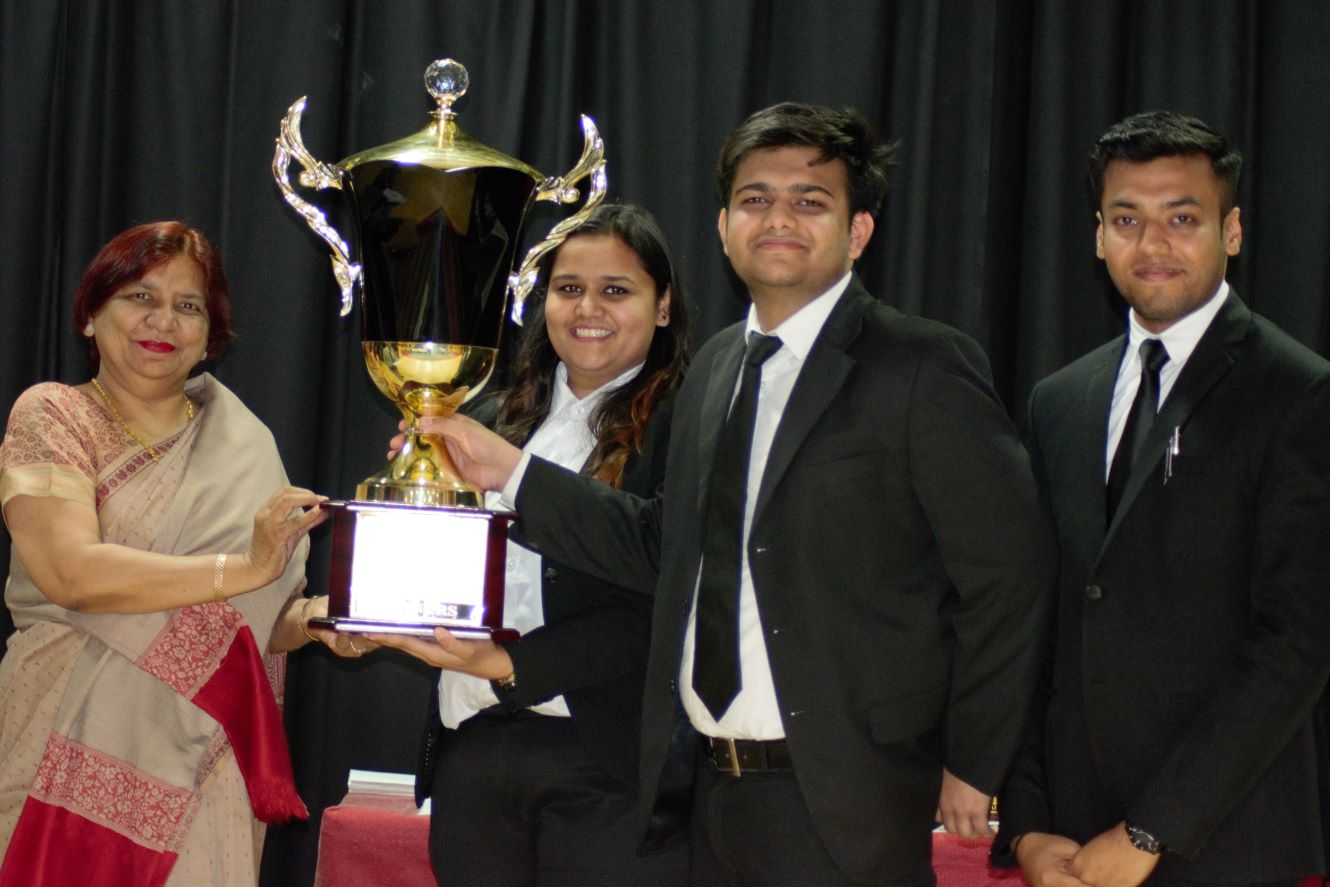
After 3 days of rounds, the trophy was finally lifted by SLS Noida with Lloyd Law College drawing a close second.
The last three days were no less than a roller coaster ride from the beginning to the end. But each person of the Organizing Committee was well prepared for this. Hospitality, Travel, Registration, Logistics, PR and Tabs all were in full action to deal with any eventuality. The moot saw an intense competition this edition, but our members and volunteers were burning the midnight oil to ensure everything runs smoothly on time.
This wasn’t just a successful competition, but also a learning experience for each and everyone.
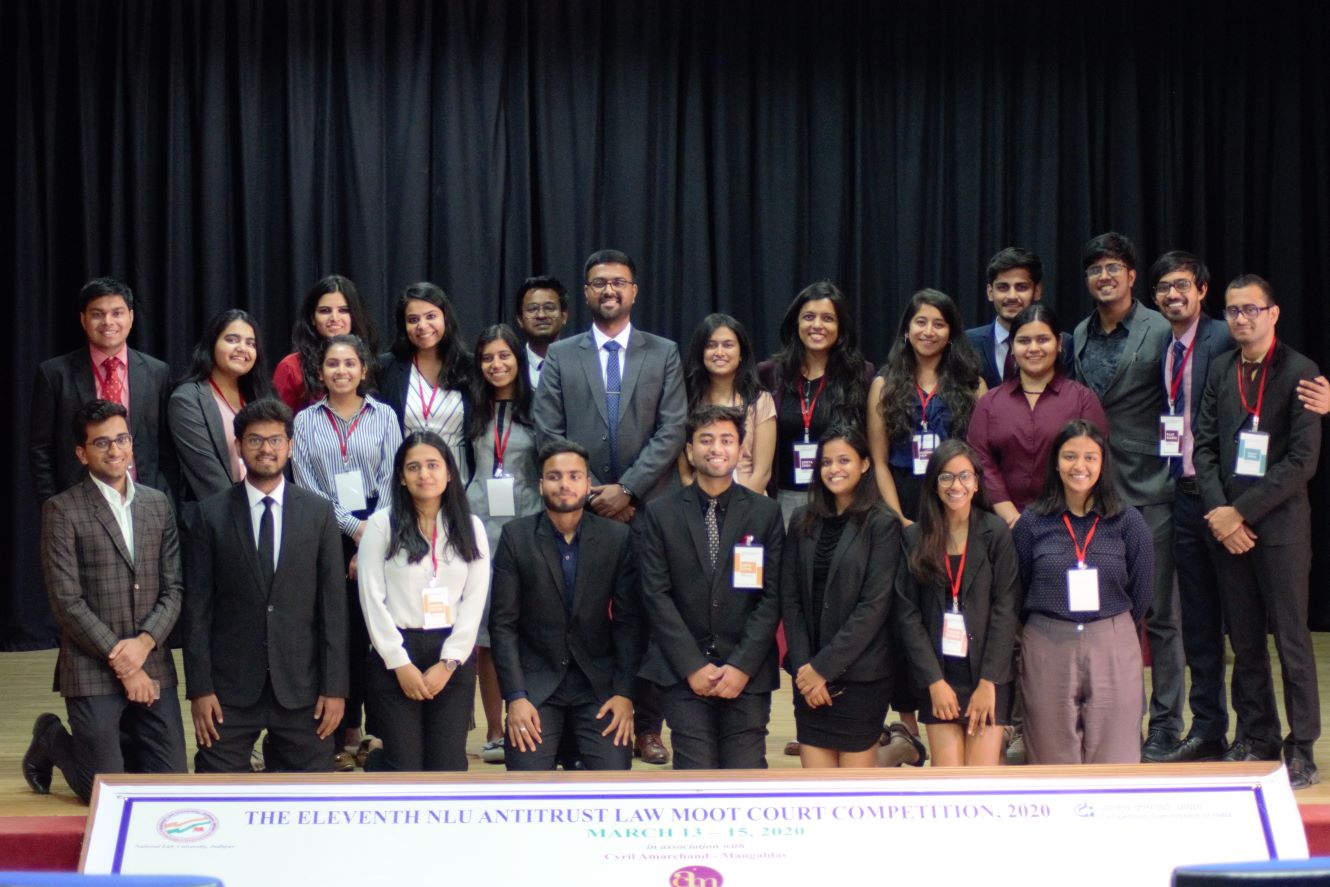
With this, Kavya Mathur, in-charge of live blogging for Eleventh NLU Antitrust Moot Court Competition, signs off.


